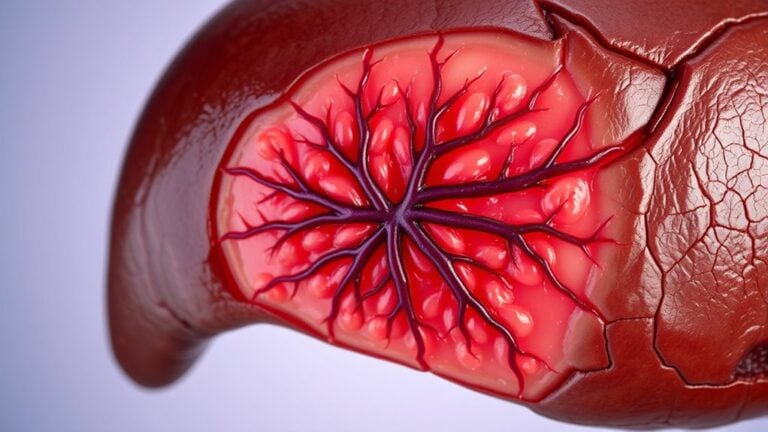Running depletes energy stores and breaks down muscle fibers, making post-run nutrition essential for recovery. Eating within 30 minutes helps replenish glycogen, repair muscles, and rehydrate effectively. Skipping a meal can lead to fatigue, slower recovery, and even muscle loss. The right balance of protein, carbs, and fluids supports the body’s repair process while preventing cramps and dizziness. But what exactly should go on the plate—and at that time? The answers could surprise even seasoned runners.
The Science Behind Post-Run Nutrition
Refueling after a run isn’t just about stopping hunger—it’s about giving the body what it needs to recover. Exercise depletes energy stores and causes tiny tears in muscles, making fuel storage replenishment and muscle damage recovery critical.
Carbohydrates restore glycogen, while protein repairs tissue. Hydration replaces lost fluids, and electrolytes balance bodily functions. Ignoring these needs slows healing and leaves runners feeling drained.
A mix of nutrients—like bananas for potassium or yogurt for protein—supports efficient recovery. Comprehending the science behind post-run nutrition helps runners make smarter choices, ensuring their bodies bounce back stronger and ready for the next challenge.
How Soon Should You Eat After Running?
The ideal recovery window for eating after a run typically falls within 30 to 60 minutes post-exercise. This timing helps replenish glycogen stores and repair muscle tissue effectively.
Choosing the right post-run meal can further bolster recovery and energy restoration.
Optimal Recovery Window
- Enhanced recovery: Nutrients absorb faster, reducing soreness.
- Energy replenishment: Carbs quickly refuel glycogen stores.
- Protein synthesis: Supports muscle rebuilding.
- Hydration boost: Helps fluids and electrolytes balance.
- Metabolic efficiency: Keeps energy levels steady.
Missing this window doesn’t ruin progress, but it slows it. Prioritizing smart fueling guarantees the body bounces back stronger.
Post-Run Meal Timing
Eating soon after a run assists the body recover more effectively, but the exact timing can vary. For most runners, consuming a meal or snack within 30 to 60 minutes post-run optimizes recovery. This window allows for proper post-run macronutrient intake, replenishing glycogen and repairing muscles with carbs and protein.
Pairing food with ideal post-run hydration levels—sipping water or electrolyte drinks—enhances nutrient absorption. Those running longer distances or at higher intensities might benefit from eating sooner. Light snacks like bananas or yogurt work well if a full meal isn’t feasible. Timing matters, but consistency in refueling is key.
Best Foods to Refuel After a Run
Choosing the right foods after running helps muscles recover and energy levels bounce back. Protein supports muscle repair while carbs replenish glycogen stores spent during exercise.
Combining both in a post-run meal guarantees balanced recovery.
Protein for Recovery
- Lean meats: Chicken or turkey provide high-quality protein with minimal fat.
- Eggs: A complete protein source, rich in amino acids for muscle repair.
- Greek yogurt: Packed with protein and probiotics for gut health.
- Plant-based options: Lentils or tofu offer solid alternatives for vegetarians.
- Protein shakes: Convenient for quick absorption after a run, especially as whole foods may not be readily available.
Selecting the appropriate protein source guarantees muscles recover efficiently.
Carbs to Replenish Energy
Though muscles need protein to recover after a run, carbs play just as indispensable a role in restoring energy. Quick digesting carbs help replenish glycogen stores, which get depleted during exercise. Opt for easily absorbed options like bananas, white rice, or sweet potatoes to speed up recovery. Timing matters—eating within 30 minutes maximizes glycogen restoration.
| Feel-Good Carbs | Why They Work |
|---|---|
| Bananas | Potassium aids cramp prevention |
| Oatmeal | Slow-release energy stabilizes mood |
| Dates | Natural sugars for instant fuel |
| White rice | Rapid digestion refuels fast |
| Sweet potatoes | Vitamins support long-term energy |
Hydration’s Role in Recovery
After a run, the body loses fluids through sweat, making hydration a critical part of recovery. Replenishing water helps restore electrolyte balance and prevents issues like fatigue or cramping. Proper hydration also supports glycogen replenishment, aiding muscle recovery.
- Electrolyte balance: Sodium and potassium lost through sweat need replacing to avoid muscle cramps.
- Thirst isn’t enough: By the time thirst arrives, dehydration could already have started.
- Water isn’t always enough: Prolonged runs might require drinks with electrolytes.
- Monitor urine color: Pale yellow means hydration is on track.
- Timing matters: Sipping fluids steadily post-run beats chugging all at once.
Staying hydrated keeps recovery smooth and energy levels stable.
Common Mistakes to Avoid After Running
Many runners unknowingly slow their recovery or invite discomfort by making a few key mistakes after logging miles. Undereating after running deprives muscles of essential nutrients, delaying repair and leaving the body drained.
Conversely, overindulging after running—especially with sugary or fatty foods—can overwhelm digestion and negate workout benefits. Skipping hydration, ignoring stretching, or rushing into intense post-run activities too soon also hinder recovery. Waiting too long to refuel weakens energy stores, while improper meal timing disrupts metabolism. Avoiding these errors helps maintain energy, supports muscle repair, and keeps discomfort at bay, ensuring runners bounce back stronger.
Tailoring Post-Run Meals to Your Goals
The right post-run meal can make all the difference in hitting fitness goals, whether it’s building endurance, shedding pounds, or speeding up recovery. Individualized nutrition guarantees the body gets what it needs without excess.
For endurance: Focus on carbs and protein (like a banana with peanut butter) to refuel muscles.
For weight loss: Lean protein and veggies (grilled chicken with quinoa) keep calories smart.
For recovery: Tart cherry juice or dietary supplements like BCAAs can ease soreness.
For muscle gain: High-protein meals (Greek yogurt with nuts) support growth.
For hydration: Coconut water or electrolyte drinks replace lost fluids.
Tailoring meals optimizes results.
Listening to Your Body’s Signals
Ever ponder why hunger strikes differently after a hard run? The body’s metabolic state shifts during exercise, altering fueling requirements. Some runners feel ravenous, while others crave nothing.
Ignoring hunger cues can lead to fatigue or overeating later. Pay attention to subtle signs—lightheadedness, irritability, or a growling stomach—as signals to refuel. Hydration also plays a role; thirst can disguise as hunger. Should energy dips, a small snack assists. On the contrary, if appetite is low, sipping electrolytes may be sufficient.
Relying on the body’s wisdom guarantees balanced recovery without rigid rules. Every run—and every runner—is unique.
Conclusion
Eating after a run isn’t just a suggestion—it’s a smart move for the body’s comeback. Those who skip refueling could find their energy dipping or muscles protesting later. A well-timed snack or meal acts like a gentle nudge, helping tired limbs bounce back and energy stores refill. It’s less about strict rules and more about giving the body what it quietly asks for—a little kindness after the effort.




